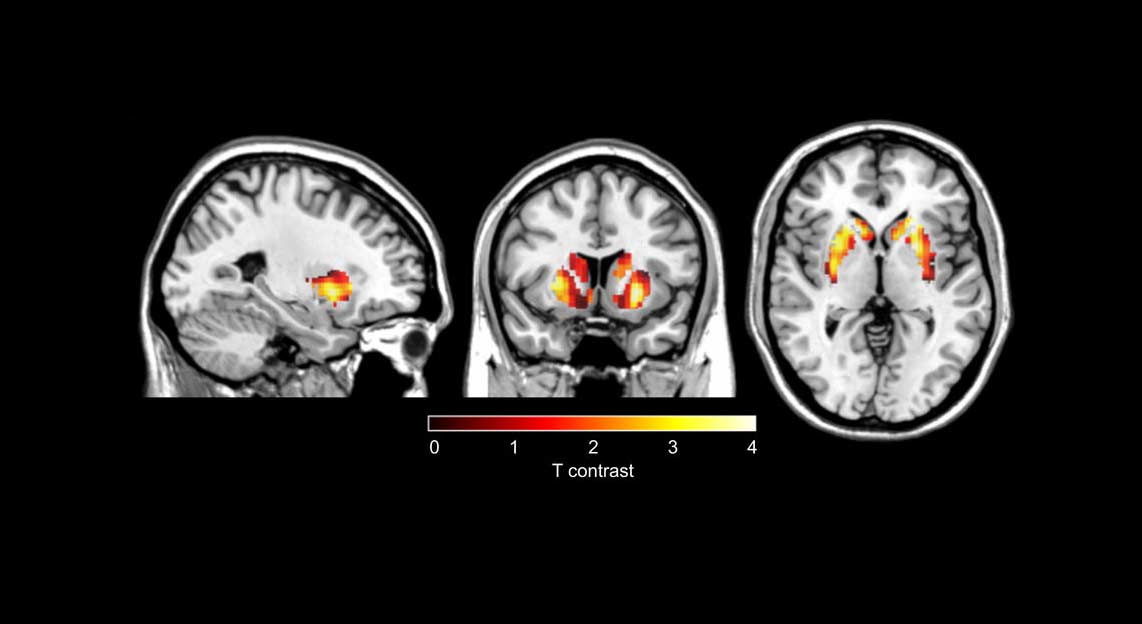By Sophie Arthur
May 22, 2018
Time to read: 4 minutes
Professor Oliver Howes, Head of Psychiatric Imaging at MRC LMS, shares his research into psychosis and the workings of the brain in two BBC Radio 4 programmes All in the Mind, which will be broadcast next Tuesday, 29 May, at 21:00 and FutureProofing – Mental Health which was broadcast last week.
We spoke to Oliver about his work and the experience of being interviewed to engage both patients and the mass public with his research.
Tell us about your research…
“Psychosis, a common mental illness, affects about 1 in 50 people during their lifetime.”
“At the moment, many patients with psychosis don’t respond well to current treatments. Until now, doctors had no idea why this was the case and weren’t able to predict who would respond well and who wouldn’t. Patients are often treated on a trial and error basis and can be taking drugs that don’t work for them for large amounts of time and suffer side-effects. We know that dopamine, a neurotransmitter that is involved with signalling in the brain, underlies psychosis in some patients and we wanted to see if the amount of dopamine could predict a patients response to treatment. In the study discussed in All in the Mind we used PET scans to measure dopamine within the brain of patients with psychosis discovering a new tool for predicting whether certain drugs would work for these patients (Jauhar et al., 2018). The other work that I am interested in looks at brain pathways that control reward systems (Viskaitis et al., 2017) and I talk about this in Future Proofing – Mental Health.”
Which groups does your research effect?
“A lot of my research will be interesting to anyone who wants to understand how the brain works but it is particularly relevant to people with psychotic disorders or disorders that affect the award system such as schizophrenia, bipolar and Parkinson’s disease, alongside their carers and clinicians.”
Will we see any outcomes implicated in the healthcare system in the near future?
“Within the Viskaitis et al., study we found that it was possible to control the reward system, using genes to produce particular responses in specific brain cells. In the future, this could allow us to fine tune brain pathways to treat the root cause of disorders affecting the reward system. Within the Jauhar et al., study we found that measures of the dopamine system at presentation predicted whether patients were likely to respond to treatment or not. This data could be used to develop a test to guide treatment choice. We are now testing this.”

What other research are you currently working on?
“We are working on the role of immune changes in the brain, which might lead to a new treatment for schizophrenia. We have also been looking at what underlies psychosis in those patients who did not respond to treatment to identify alternative targets for treatment “
Where does your research fit in the broader category of mental health research?
“The medications we examined are used for lots of other conditions as well as psychosis so it could have implications for response across depression, bipolar disorder and other illnesses.”
Recently mental health research has been given a lot of attention, ‘Lifelong Mental Health’ is also one of the MRC Spotlights, what are your views on this, how do you think this has come about?
“One in four people will suffer from a mental illness during their lifetime so most of us will either experience a mental illness or know someone who has. However, in the past people have tended to not talk about mental illness so it has been hidden. Unfortunately, this has meant that research into mental illness has been chronically underfunded and, not surprisingly, progress has been disappointing. Now, with the involvement of some high-profile people such as Prince Harry, we are beginning to see this change.”
Catch Oliver on BBC Radio 4’s All in the Mind next Tuesday, 29 May, at 21:00 and listen to the recording of BBC Radio 4’s FutureProofing – Mental Health (Oliver’s segment at 30:11).